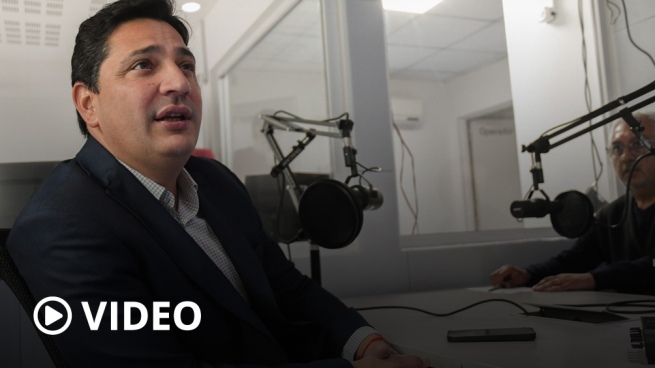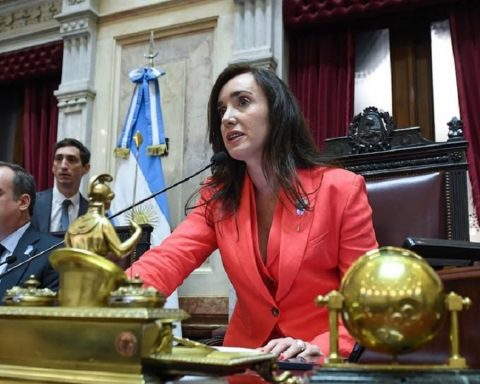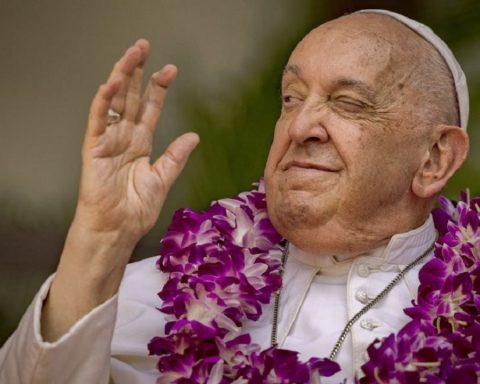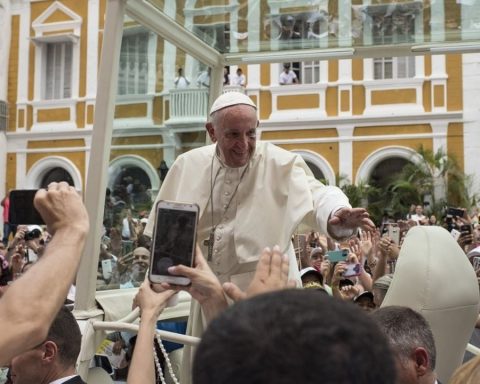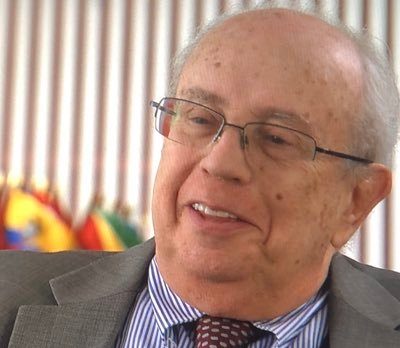The president of Trenes Argentinos Operacións (TAO) and Trenes Argentinos Infraestructura (Sofse), Martín Marinucci, emphasized this Thursday that one of the objectives of his administration is for railway policy to become established as a State policy that transcends governments, and that it needs to “sustain itself in terms of investment, development and growth for the next thirty years.”
In an interview with Télam, the head of the state railway company also mentioned the works underway on the metropolitan lines, as well as the future incorporation of rolling stock.
? @MartinMarinuccipresident of Trenes Argentinos (@trenesarg), visited Telam
? In an exclusive interview, he highlighted the recovery of more than 12 rail services and more than 55 stations in Argentina and the impact it has on the development of localities pic.twitter.com/SP6vH0xZ2P
—Telam Agency (@TelamAgency) October 6, 2022
-What are the works in execution of the metropolitan trains? Is progress being made in electrification?
-In Belgrano Sur, there is an important execution of the viaduct from Sáenz to Constitución, which will increase the number of users who can take this railway line and help decompress the use of Sarmiento. In addition, we are making progress on the line with the viaduct in Tapiales, the renovation of tracks and recently the World Bank approved (a loan of) US$ 600 million for its electrification. The goal is to reach the electric train system on all lines in the Metropolitan Area. In the coming weeks, the Ministry will surely publish the tender for the electrification of the San Martín and then the Belgrano Norte will be missing.
-Belgrano Norte which, together with the Urquiza, are the last lines in private hands. What will be done after September 2023 when the last extension expires?
-The Ministry is working with the possibility of some statement. Sofse has the possibility of operating them or by third parties. It is a subject that is not yet defined.

– Will rolling stock be acquired? How are the talks and the link with China?
-They are very good. I was in Berlin at the most important railway fair InnoTrans. I was with the authorities of Chinese companies like CRRC, and they are all committed to the railway project in Argentina. The President of the Nation and the former minister (Mario) Meoni signed a MOU (memorandum of understanding) in December 2020 for US$495 million, including the purchase of trains for the Tren de la Costa, Belgrano Sur and to renew the 200 cars Rock Toshiba. That is an issue that we continue in full dialogue to establish the contracts and move forward with that acquisition. In addition, there is the provision of spare parts and maintenance. When we got to the management, the 709 Chinese electric cars bought in the second government of the current vice president, Cristina Fernández de Kirchner, needed maintenance. In 2017 and 2018, the former Minister of Transport (Guillermo Dietrich) had canceled the tender for the purchase of spare parts, so obviously the objective was to stop the trains from running. To guarantee the service, units were cannibalized in electric trains and, above all, in long-distance cars. In electrics, we are advancing with contracts for the shipment of spare parts and we are very close to paying the advance payment of US$15 million on a two-tranche contract of US$89 million. In long-distance cars, when we arrived there were 42 out of circulation due to lack of parts or cannibalization, and we bought almost US$ 7 million in parts, recovering more than 20 of those cars. Having been recovering them, allowed us to increase the supply capacity.

-Regarding the San Martín Line, when will the Villa Crespo station be reopened? What will happen to cars purchased from Russia in January this year?
-When we took over the San Martín viaduct, there were two stations, Villa Crespo and La Paternal, with a very important flow of users that were still owned by the Government of the City of Buenos Aires. I must admit that with the former Secretary of Transportation, Juanjo Méndez, we have worked very well, especially in the pandemic, but we did not agree on that. They wanted to deliver it as a finished work where there was still a significant investment and construction time to go until we were able to come to an agreement, and in October of last year we were able to sign the act of assignment of the stations that AUSA was carrying out. From then on, we inaugurated Paternal several months ago and we are executing the Villa Crespo work which, due to its magnitude, we estimate that in March or April (2023) we will be inaugurating it. Regarding the training, we gave continuity to a tender that had started in 2018 the management of former Minister Dietrich. An award was achieved in December of last year but in February the war came and it was put on “stand by”. In terms of operation, it hurt us because around October we could now be receiving the first units.

-And in Sarmiento? What about the burial?
-The burial is a work that is paralyzed and has had its conflict in judicial terms. It is a work that would remain in the medium term. Regardless of that, the issue of barriers must be resolved. We started the construction of modular bridges, built by Tandanor, another State company. We have already installed six and we are also advancing in the construction of 26 underpasses.
-How is it done so that in Argentina the policies related to the train have continuity?
-Railway policy does not have to be a government program but rather a State policy. I took office in January 2020 and I don’t know if I’m going to leave in ten minutes, but I want to have the peace of mind that the railway system is defended by all citizens and all political sectors because it generates not only the possibility of connectivity in social terms, but it also helps the roots of men and women who are born in a locality and who, if they do not have this possibility of transportation, have to migrate to other cities to study or look for opportunities.
I would love for the railway system to be profitable and for all Argentines to be able to pay what a ticket is worth, but the profitability that is sought is social, that an accessible system can be accessed in economic terms. I believe that we are in a situation where this awareness of State policy is being generated. I am a political activist and I want to win all the elections, but this policy has to be sustained in terms of investment, development and growth for the next 30 years after deteriorating for 70.

News on trains to Mar del Plata
The trains to Mar del Plata will have car trays starting next summer so that passengers can load their cars on their trips to the Atlantic coast.
This was announced in an interview with Télam by the president of Trenes Argentinos, Martín Marinucci, who also pointed out that the state firm plans to inaugurate a service to Mendoza in the “first half of next year.”
In the same way, he assured that the operator’s intention is to improve travel times in long-distance services that are already provided.
-Today the sale of long-distance tickets opens for November and then comes the summer. Will it be possible to take the car to the coast by train?
-We recovered four railcars and put them in good condition. We are now doing road speed tests and we had to adapt the braking system. Surely in the summer those who travel by train or those who want to send their vehicle to Mar del Plata will be able to do it through the tracks.
-A return to Tucumán and also to Mendoza appears on the horizon?
-Mendoza is one of the challenges that we had proposed as work. To achieve this challenge we had to recover the embankment in La Picasa (lagoon) that was destroyed; We managed to return to Rufino, we arrived at Justo Daract in the province of San Luis and we have already started the necessary track inspections to think that this train will arrive in Mendoza. Sometimes it is complex to establish dates but we expect to think of an explorer train before the end of the year and the first semester of next year for regular services. In Tucumán we are working on the bridge over the Cevil River, which is what prevents us from reaching San Miguel. The work has just begun, but as soon as it is finished, the train will arrive again.
-A service to Córdoba took 13 hours in the sixties and today 21. To Tucumán it takes 31. What is being done to improve this situation?
-In time there are many factors. Thirty years ago, someone decided to give private companies the authority to transport cargo and they did not comply with the commitments that were in those concessions so that passenger trains circulate at the corresponding speed. If one reads a road bulletin from 30 years ago when the concessions began, today they are circulating at 60% of the speed of that time. As they are finished and the infrastructure passes to the State, it will go to an open access system in loads where different operators will be able to participate in the tenders for the sections and the State will have the possibility of investing economic resources to improve the road. In the case of Mar del Plata, the road is in perfect condition except for 60 kilometers that are now under construction. Like Rosario, which was within the NCA concession and we managed to get it to anticipate the delivery of the road authority. In Rosario we were over eight hours and today we are in just over six, and to lower them we had to intervene in recovering the barriers at the level crossings.
-It can be said that they seek to build a base in the services to improve them later.
-Absolutely. Can we circulate at 60 kilometers per hour and not at 120 like in Rosario and Córdoba? Let’s go to 60 guaranteeing operational safety, not achieving the times that one wishes or that we had 30 years ago. In long distance services there is more than 96% satisfaction even in El Tucumano, which takes so long.
-How are the freight trains coming?
-In 2019 we transported 3.8 million tons and in 2021, 8 million. In the last two years we have renewed more than 1,700 kilometers of tracks and this allows us to be more competitive. In Vaca Muerta we put out the tender to join Bahía Blanca and Añelo and two important logistics nodes are underway in Güemes, Salta, and Cevil Pozo, Tucumán.
